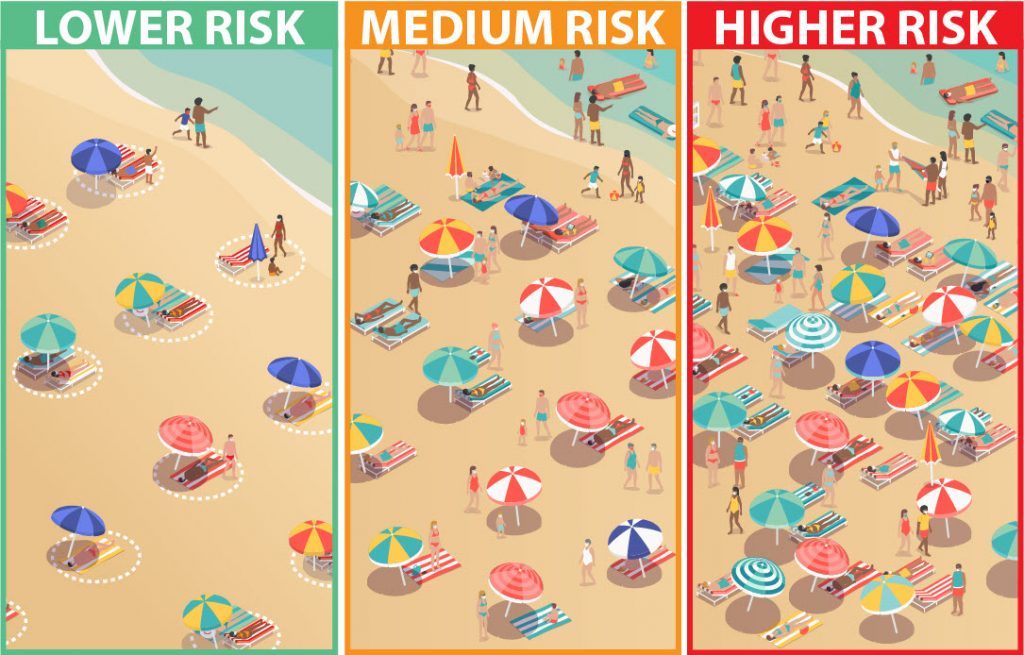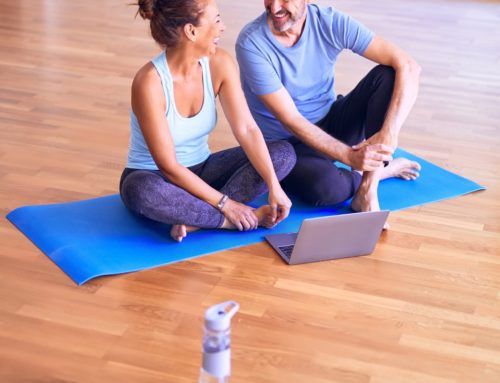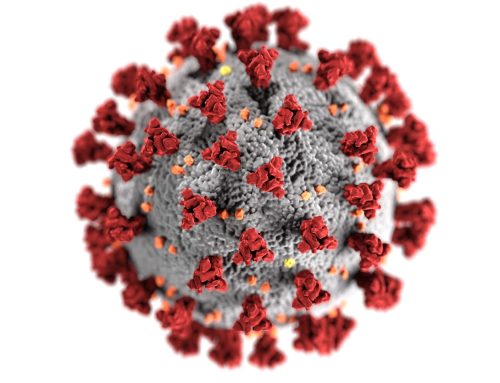Water safety is critical all the time, but since the start of the global pandemic in March, “water safety” has taken on new meanings. As most North Carolina residents know, you should follow general water safety guidelines when visiting swimming pools, lakes, and our coastal beaches.
But how can you keep yourself and your family safe at these popular summer locations with the threat of COVID-19? We are going to go over safety precautions that you should follow, as well as what to expect when visiting.

Can COVID-19 spread in the water?
The good news is that there is no evidence that COVID-19 can spread in swimming pools, lakes, or oceans. However, the risk of visiting such places is the proximity of other people.
At the start of the pandemic, there was a lot of confusion and uncertainty about the safety of various public spaces. Most of our beaches were closed, even for walking. Now, many health officials have touted the beach as a somewhat safe activity — as long as you keep your distance from others and remain with your family group.
The critical point is distance. Many states alerted beachgoers about potential risks in June and July, advising them to get tested due to outbreaks associated with particular beaches, such as Myrtle Beach. Florida has continuously been highlighted as a problem due to so many beach visitors. Dozens of lifeguards in New Jersey contracted COVID earlier this summer due to their off-duty social activities.
Those cases often stem from parties, restaurants, and people sitting close together on the beach.
Stick to the Guidelines
According to the CDC, swimming pool, lake, and beach guidelines are the same as those we’re following everywhere. But sometimes, it’s easy to forget some of these when hanging out near the water. For families, the pool or beach seems like the one thing they can do to get out of the house with children. But while there, don’t forget to:
- Wash your hands often. If soap and water aren’t available, use hand sanitizer.
- Cover your coughs and sneezes with your elbow.
- Remain 6 feet away from other visitors. This is especially tricky at some swimming pools.
- Wear masks when physical distancing is not possible, except when swimming.
- Stay home if you have symptoms of COVID-19 or have been in contact with someone with COVID-19.
- Avoid sharing toys, floats, and food with others outside your group.

House Rentals
North Carolina residents from further inland often come to the coast for the weekend or a week-long getaway. Some tips for those situations:
- Ask about the cleaning procedures at the house or hotel where you’re staying.
- Have food and groceries delivered or do takeout for minimal contact.
- Avoid the hotel elevator, if possible. Most elevators don’t offer six feet of room, and you’re all touching buttons. Take the stairs if you can.
- Keep disinfecting wipes and hand sanitizer with you.
Pool Rules for Staff
Experts say that because the distance is easier to maintain at the beach, it’s safer to head to the sand than to visit a community or neighborhood pool. If you go, make sure you follow the guidelines and keep an eye out for safety measures put in place by pool staff. If your pool staff is not following these guidelines, alert community officials.
- Provide adequate supplies such as soap, hand sanitizer, paper towels, tissues, and no-touch trash cans.
- Post signage and messaging to visitors, encourage guests to follow guidelines to lessen the spread of COVID-19.
- Frequent cleanings of surfaces such as rails, slides, bathrooms, door handles, lifeguard stands, and climbing structures.
- Discouraging the use of shared objects.
- Limiting non-essential visitors, volunteers, gatherings, and planned events.
Visit the CDC’s website for a full list of guidelines for visiting swimming pools and beaches.
If you’re concerned that you’ve come into contact with COVID-19 or display any symptoms, contact us for a drive-through test.






